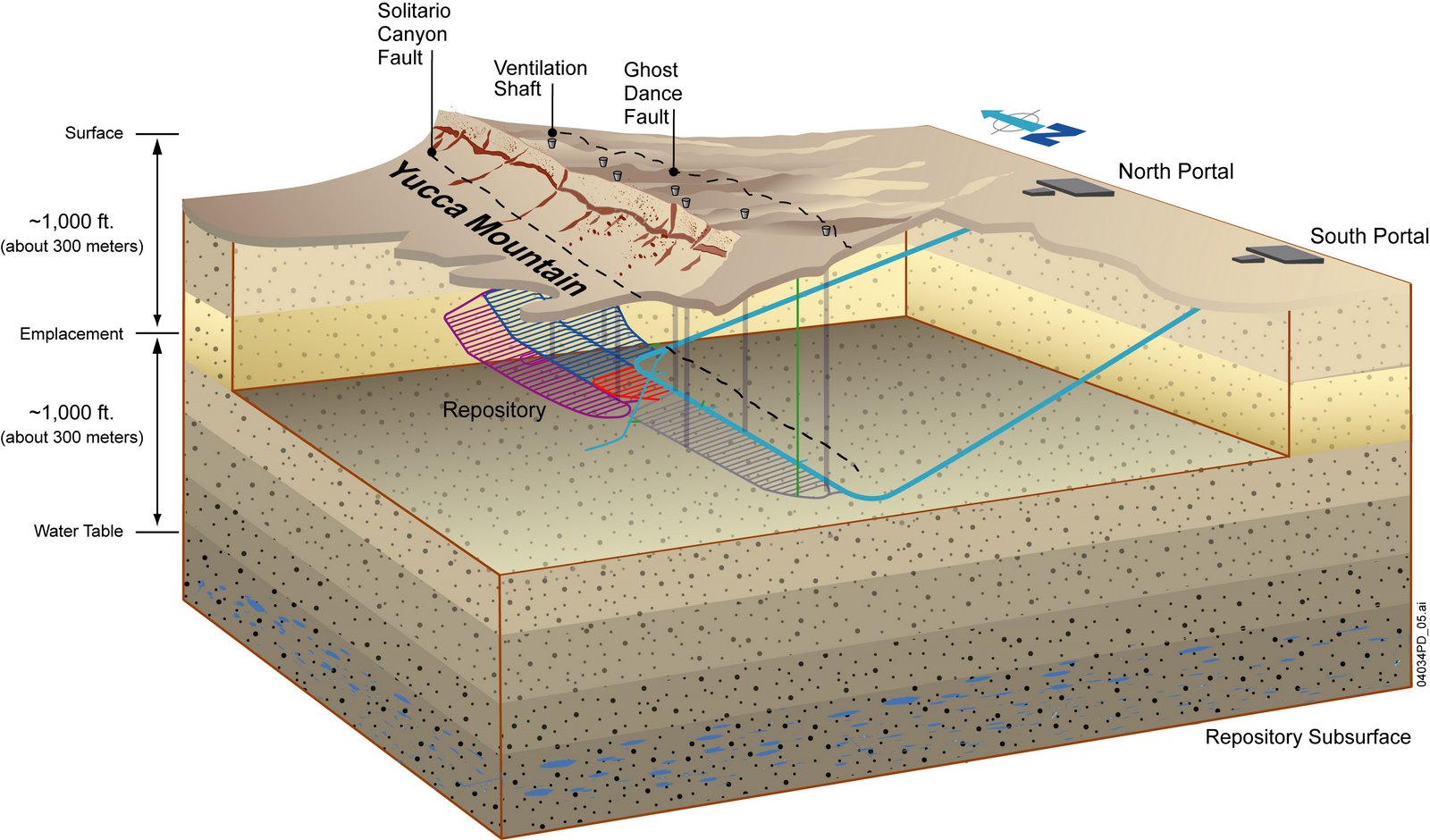I have already written about the Yucca Mountain Repository Project in a previous post including mentioning the cancellation of the project. The cancellation was complex, confusing and politically charged. I decided that I needed to dig deeper into the subject.
Yucca Mountain was first considered as a site in 1983, was selected as the final sole site in 1987, the application for a license was filed in 2001 and was supposed to open in 2020.The selection was made partly on a political basis with a government committee choosing the site from three finalists because it was very “dry” and very “remote.” After the decisions, further studies found that ground water moved through Yucca Mountain much faster than thought and raised the concern of possible leaching of waste materials into the water table in the area.
There was serious public backlash by the citizens of Nevada about the location of the Repository in their state and they fought the Repository in court and in the Congress. Harry Reid, the Democratic Senator from the state of Nevada, was strongly opposed to the repository project. Barack Obama had promised to shut down the repository project if elected President in 2008. When Obama assumed the Presidency in January 2009, in league with Harry Reid as the Senate Majority Leader, he moved to end the Yucca Mountain Repository Project.
In March of 2009, The U.S. Department of Energy (DOE) tried to withdraw its license application with the Nuclear Regulatory Commission (NRC) for the Yucca Mountain Repository. Obama’s budget request for 2010 cut off most funding for the Repository Project. In July of 2009, a bill to not defund the Yucca Mountain Repository for 2010 was passed 388 to 30 votes in the U.S. house. A panel of judges at the NRC ruled in 2010 that the DOE could not withdraw its license application for the Repository because it lacked the authority. Congress had ruled to create the Repository and only Congress could cancel the license request. In the fall of 2011, the NRC accepted the Obama administration’s request to shut down the site, citing “budgetary limitations.” This decision was challenged in Federal Court. In August of 2012, the Federal Court said that they would not rule on whether the NRC could cancel the Yucca Mountain Repository Project until the end of 2012.
U.S. Senate Committee on Environmental and Public Works reported in 2008 that if the government did not deliver on contractual obligation to have a working repository, it could cost eleven billion dollars by 2020. The United States promised to start accepting spent nuclear fuel from commercial reactors in 1998. Utilities have recently sued over this failure and it could cost the government millions. The U.S. government was supposed to have a repository open by 2035 to accept military waste now in Idaho and Colorado. If it does not do so, the government could pay fines of over twenty seven million a year until it does have a repository. Also, failure to have a repository ready could interfere with the refueling of nuclear powered craft and impact national security.
There are solid arguments for and against the Yucca Mountain Repository but one thing is certain. The cancellation of this project will cost the U.S. taxpayer a lot of money and will put increased pressure on the U.S. government to come up with an alternative site for permanent storage of high-level nuclear waste as quickly as possible.
Yucca Mountain Repository:
